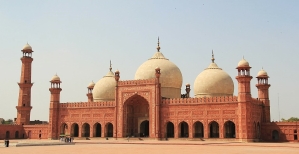
With a soaring number of blasphemy allegations in Pakistan in 2023, rights activists are reiterating demands for legislation against blatant abuse of the country’s notorious blasphemy laws.
At least 329 persons were accused of blasphemy under the law in 2023, according to the Center for Social Justice (CSJ), an advocacy group based in Lahore. Among those accused, 247 were Muslims, 65 were Ahmadis, 11 were Christians and one was Hindu, while the religious affiliation of five others was unknown.
There has been a spike in blasphemy allegations in recent years, according to Lahore High Court attorney Lazar Allah Rakha.
“The state must legislate against false accusations of blasphemy, because this abuse hangs like the sword of Damocles on the heads of all citizens regardless of their faith affiliations,” Rakha told Christian Daily International-Morning Star News. “The situation has aggravated to the extent that people are now being targeted over minor disputes on almost a daily basis.”
Due to the risks attached to blasphemy cases, judges tend to adjourn hearings, which results in prolonged incarceration of suspects, which Rakha said is a serious violation of their human rights.
“The entire system needs to be reviewed in the larger interest of justice,” said the attorney, who has successfully defended many people falsely accused of blasphemy.
Punjab Province had the highest number of people accused of blasphemy, with 179, followed by 79 in Sindh Province, 37 in Azad Jammu and Kashmir, 32 in Khyber Pakhtunkhwa, and one each in Balochistan and Gilgit-Baltistan, according to the CSJ report.
It added that seven persons accused of blasphemy were killed extra-judicially in 2023, including four in Punjab and one each in Khyber Pakhtunkhwa, Balochistan and Azad Jammu Kashmir.
Reportedly 95 blasphemy suspects were killed extra-judicially between 1994 and 2023. The only conviction and sentencing for such killings was that of Mumtaz Qadri, who was executed in February 2016 after assassinating former Punjab Gov. Salmaan Taseer in January 2011.
At least 2,449 persons have been accused of committing blasphemy between 1987 and 2023, according to the CSJ report. The highest number of accused by religion were 1,279 Muslims (52 percent), followed by 782 Ahmadis (32 percent), 291 Christians (12 percent), and 45 Hindus (2 percent), while the religion of other (2 percent) was unconfirmed.
The highest number of cases by area was 1,770 in Punjab Province (72 percent), followed by 471 in Sindh (19 percent), 99 in Khyber Pakhtunkhwa (4 percent), 55 in Azad Jammu Kashmir (2 percent), 35 in Islamabad, 12 in Balochistan and seven in Gilgit Baltistan.
The CSJ cited data from the Punjab Prison Department revealing that as of Feb. 13, there were 587 prisoners confined for blasphemy under sections 295-A, B and C of Pakistan Penal Code in jails across the province. Among these, 515 are under trial, including 508 males, six females, and one juvenile prisoner.
The CSJ further urged the incoming government to establish a commission of inquiry under the Pakistan Commission of Inquiry Act, 1956. This commission should be tasked with investigating the misuse of blasphemy laws and determining the scale and motives behind such cases, so that justice is served and innocent lives are protected.
“It is crucial to address the root causes of these issues and to promote a culture of tolerance and social harmony in Pakistan,” the report stated.
CSJ Executive Director Peter Jacob said there is an urgent need to develop and implement short-term and long-term strategies to counter growing religious intolerance in Pakistani society.
“There are centers of intolerance, indicators and factors that continue to generate certain behaviors and incidents of religious intolerance which the administration has chosen to treat symptomatically and on ad-hoc basis,” Jacob told Christian Daily International-Morning Star News. “This is why every time we have certain policy initiatives in the form of the National Action Plan or the Action Plan for Human Rights, the message has not penetrated, and incitement to violence in the name of religion has not decreased by any chance.”
Jacob, who was recently awarded with the U.S. State Department’s International Religious Freedom Award, said that each manifestation of such intolerance should be taken seriously.
“We should now draw closer to a comprehensive policy which should include legislative review of the blasphemy laws, educational and awareness programs, etc.,” he said. “The first step in this direction should be the formation of a commission of inquiry, not against one incident, but the whole phenomenon of religious intolerance in relation to the abuse of the blasphemy law.”
In October, the Senate Standing Committee on Human Rights was informed that 179 people were under detention and facing trials across the country on charges of blasphemy, while 17 had been sentenced. The findings were submitted to the Senate panel by the National Human Rights Commission of Pakistan (NHRC).
Earlier, Sen. Walid Iqbal, chairman of the Senate Standing Committee on Human Rights, had sought details of blasphemy cases from the NCHR during a meeting called days after the Aug. 16 attack in Jaranwala, when a violent mob destroyed church buildings and dozens of Christians’ houses and businesses over allegations of blasphemy.
Pakistan ranked seventh on Open Doors’ 2024 World Watch List of the most difficult places to be a Christian, as it was the previous year.




